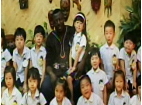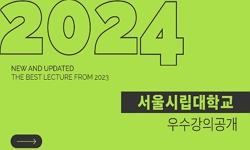이 논문은 18세기 후반기에 활동한 문인 無名子尹기의 시문을 분석하였다. 평생의 생활공간이었던 서울의 도회지 일상과 세태를 묘사하면서 독특한 비평적 시선을 일관되게 적용한 사실에 ...
http://chineseinput.net/에서 pinyin(병음)방식으로 중국어를 변환할 수 있습니다.
변환된 중국어를 복사하여 사용하시면 됩니다.
- 中文 을 입력하시려면 zhongwen을 입력하시고 space를누르시면됩니다.
- 北京 을 입력하시려면 beijing을 입력하시고 space를 누르시면 됩니다.

특집논문 : 무명(無名)의 선비, 기록으로 말하다 ; 18세기 후반 서울의 도시상(都市相)과 尹기의 시선 = The Urban Portrait of Late Eighteenth-Century Seoul by YUN Gi
한글로보기https://www.riss.kr/link?id=A100412337
- 저자
- 발행기관
- 학술지명
- 권호사항
-
발행연도
2015
-
작성언어
Korean
-
주제어
무명자 ; 윤기 ; 서울 ; 18세기 ; 상업도시 ; 세태비평 ; 도회지 ; Anonymous (Mumyeongja) ; YUN Gi ; Seoul ; eighteenth century ; metropolis ; social critique ; urban life
-
등재정보
KCI등재
-
자료형태
학술저널
-
수록면
55-83(29쪽)
- DOI식별코드
- 제공처
- 소장기관
-
0
상세조회 -
0
다운로드
부가정보
국문 초록 (Abstract)
이 논문은 18세기 후반기에 활동한 문인 無名子尹기의 시문을 분석하였다. 평생의 생활공간이었던 서울의 도회지 일상과 세태를 묘사하면서 독특한 비평적 시선을 일관되게 적용한 사실에 주목하였다. 다수의 작가들은 상업도시로서 번영을 구가하는 서울의 도시상을 활기차고 역동적 측면에 초점을 맞추어 묘사하려는 경향이 우세한데 반하여, 윤기는 번영하는 도회의 그늘에서 고통 받고 힘겨워하는 사람들의 삶을 부각시키려는 경향이 우세하였다. 세태비평과 문명비평의 요소가 강하게 투영된 그의 작품에서 1) 서울의 풍경과 서정, 2) 가진 자의 세상에 대한 비평, 3) 가지지 못한 도회민에 대한 연민, 4) 무법천지의 일그러진 세태를 중심으로 구체적인 작품을 들어 분석하였다.분석에 따르면, 서울은 도시 전체가 하나의 큰 시장으로 금전 만능주의의 타락한 가치관과 질서가 난무하는 세속적 도시였다. 그로 인해 고귀한 인간적 위의와 가치를 지켜오고, 윤리와 질서가 유지되던 사회가 급격하게 파괴되는 도회지 실상을 그는 폭로하고자 했다. 그의 문학은 완결되고 안정적이던 수도 서울이 부패와 무질서가 만연하고 극심한 빈부격차로 신음하는 상업도시로 변모하는 과정임을 작품으로 형상화하였다. 그와 같은 독특한 시선이 그의 문학이 지닌 가치이다.
다국어 초록 (Multilingual Abstract)
This paper analyses poems written by Anonymous YUN Gi (1741-1826), a native of Seoul who made the city his home his entire life. In his many works, Yun (whose pen name was "Anonymous," or "Mumyeongja") is consistently critical as he observes the intim...
This paper analyses poems written by Anonymous YUN Gi (1741-1826), a native of Seoul who made the city his home his entire life. In his many works, Yun (whose pen name was "Anonymous," or "Mumyeongja") is consistently critical as he observes the intimate details of everyday life and the prevailing social customs of the day in Seoul. In this regard, he is unique among his contemporaries. When writing about Seoul, the capital city of the country then and now, other poets of his time tend to highlight the bright and dynamic aspects of the city; they describe a thriving metropolis, bustling with commerce. Yun Gi`s works, on the other hand, tend to underscore the lives of those who are hard-working and suffering: in other words, those who live in the shadows of the flourishing metropolis. Thus, the poems strongly reflect his critique of society and culture. My paper focuses on this aspect of Yun Gi`s poems as it examines, more specifically, the following: 1) his portrayal of life and society in Seoul and their pathos 2) his critical view of those who have vested interests in society; 3) his sympathy for the urban poor; and 4) his view of the rampant lawlessness of the day. Yun sees Seoul in the late eighteenth century as one large marketplace, a city where mammonism, debauchery, and lawlessness are rampant. Furthermore, in his view, Seoul had once been whole and balanced, but it became a hub for commerce where corruption and chaos prevailed and where the gap between the rich and poor was widening. He wanted to expose how the city was rapidly destroying what was noble about human dignity and human value. The value of his literature lies in this unique view he held during his time.
동일학술지(권/호) 다른 논문
-
특집논문 : 무명(無名)의 선비, 기록으로 말하다 ; 무명자(無名子) 윤기(尹기)의 생애(生涯)와 교유(交遊)
- 성균관대학교 대동문화연구원
- 이규필 ( Gyu Pil Lee )
- 2015
- KCI등재
-
특집논문 : 무명(無名)의 선비, 기록으로 말하다 ; 무명자(無名子) 윤기(尹기)의 동몽시(童蒙詩)와 그 세계(世界)
- 성균관대학교 대동문화연구원
- 진재교 ( Jin Jae Kyo )
- 2015
- KCI등재
-
특집논문 : 무명(無名)의 선비, 기록으로 말하다 ; 한문 고전의 제목 번역과 작품 해제 작성에 대한 시론(試論)
- 성균관대학교 대동문화연구원
- 강민정 ( Min Jeong Kang )
- 2015
- KCI등재
-
일반논문 : 조선 전기 조명(朝明)외교관계의 함수, "예의지국(禮義之國)"
- 성균관대학교 대동문화연구원
- 구도영 ( Do Young Koo )
- 2015
- KCI등재




 KCI
KCI KISS
KISS







